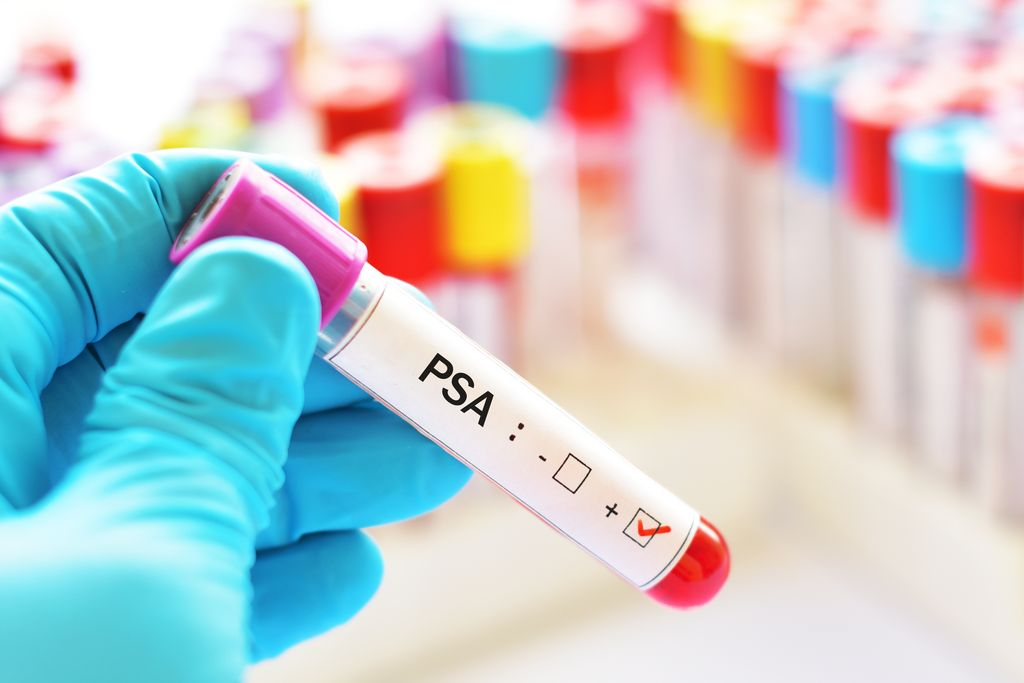How is Prostate Cancer Diagnosed?
PSA (Prostate Specific Antigen) is a protein produced by the prostate and found mostly in the semen, with very small amounts released into the bloodstream. A PSA blood test is used to assess whether or not you should have further testing—usually in the form of imaging and/or biopsy to determine the presence of cancer.
Although a high PSA (generally, confirmed to be above 4 ng/mL), abnormal digital rectal exam (DRE), or suspicious areas on magnetic resonance imaging (MRI) may increase a doctor’s suspicion of prostate cancer, a biopsy is necessary to confirm a diagnosis.
Blood and urine tests are available that may provide additional information, helping you and your doctor determine whether a benign condition may be at play, or whether a biopsy is warranted. These include free PSA, Prostate Health Index, 4K Score®, EPI test, PCA3, MyProstateScore™, and Select MDx®. These tests may be useful in certain cases; routine use in every patient is not currently recommended by clinical guidelines. Some of these tests may also be combined with MRI.








